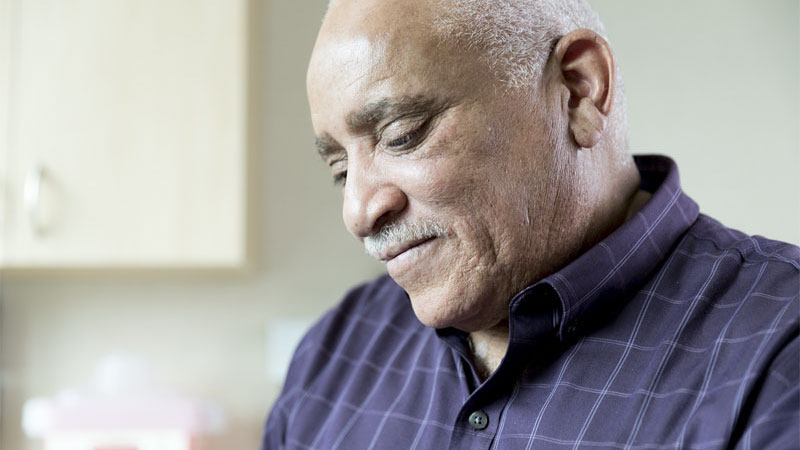
According to the CDC, dementia is “. . . a general term for the impaired ability to remember, think or make decisions, which interferes with doing everyday activities.” It’s a set of symptoms.
While Alzheimer’s disease is the most common cause of dementia, there are other related disorders resulting in dementia that often combine to affect the patient. Currently, the CDC estimates that approximately 5.8 million people in the U.S. suffer from Alzheimer’s disease and other disorders that cause dementia – 200,000 of those are younger than 65 years old.
Dr. Cindy Johnston, a WellMed family practice physician in San Antonio, has witnessed the effects of dementia on many of her patients. She is also dealing with the disease personally, as her mother is experiencing some symptoms.
“It’s important to remember that dementia is not a normal part of aging,” Dr. Johnston says.
Because patients with dementia can decline slowly, it may be difficult for family members and those who are typically around them to see the symptoms immediately.
For example, it is normal for older persons – and people of all ages, for that matter – to occasionally misplace their keys or struggle to find a word. Even forgetting the name of an acquaintance or recent events is considered natural for an aging person.
However, the following are typical signs of dementia to watch for:
- Getting lost in a familiar location
- Using unusual words to refer to familiar objects
- Forgetting names of close family and friends
- Forgetting once-familiar memories
- The inability to independently complete everyday tasks
Dr. Johnston says risk factors for developing the symptoms of dementia include diabetes and cardiovascular/vascular disease. She adds the following also increase the possibility of developing dementia:
- Excessive alcohol or drug use
- Parkinson’s disease
- Repetitive physical injuries to the brain (like those suffered by athletes in physical contact sports))
Luckily, there are some steps to take to help prevent the onset of dementia. Dr. Johnston says dementia prevention mirrors many of the steps prescribed for various other diseases. It is important to be physically active, not smoke, avoid excessive alcohol or drug use, control weight and eat a healthy diet. Monitoring blood pressure, cholesterol and blood sugar are important steps as well.
According to Dr. Johnston, the stigma affiliated with dementia can lead to frustrating interactions between patient and family. “Especially in the early stages, the patient can get angry when confronted with the possibility that he has dementia. It is the patient’s natural reaction to protect themselves by shunning those who most want to help. In a way, dementia is a thief,” Dr. Johnston says. “It is a silent stealer of relationships and independence.”
Patients with dementia tend to lose their ability over time to understand their situation and make decisions. For this reason, Dr. Johnston recommends the following:
- Ensure you are legally able to help your family member make health care decisions:
- Execute a HIPAA authorization form. This grants a caregiver access to health information.
- Better yet, execute a Medical Power of Attorney. This grants the caregiver not only access to health information, but also the ability to make medical decisions on behalf of the care recipient.
- Help your loved one execute an advance directive, often called a living will. Generally, these documents allow a person to record their wishes for emergency and/or end-of-life care before a medical crisis strikes.
- If you are not designated on the patient’s HIPAA, ask to go to a medical appointment with the patient and discreetly slip a note to a medical assistant or the front desk letting the doctor know your concerns. Dr. Johnston warns this should be a brief note with quick examples of why something seems off.
“We should celebrate those who care for people with dementia,” says Dr. Johnston. “Their lives are interrupted and overtaken by caring for the patient. They need to take care of themselves and show themselves grace.”


